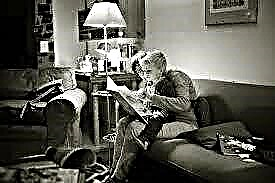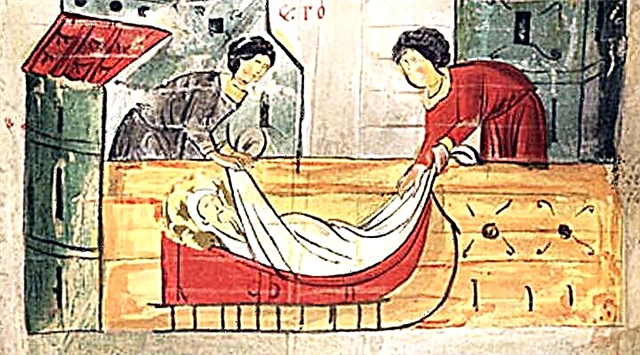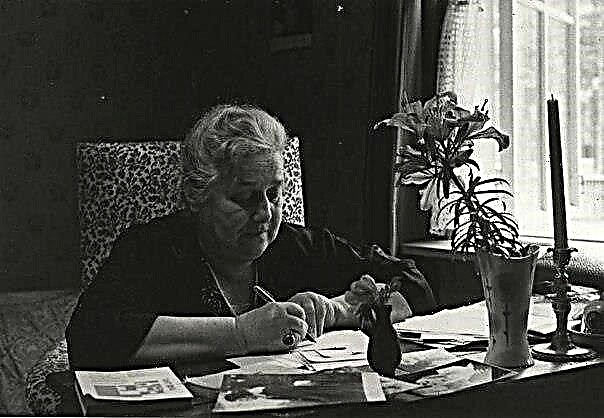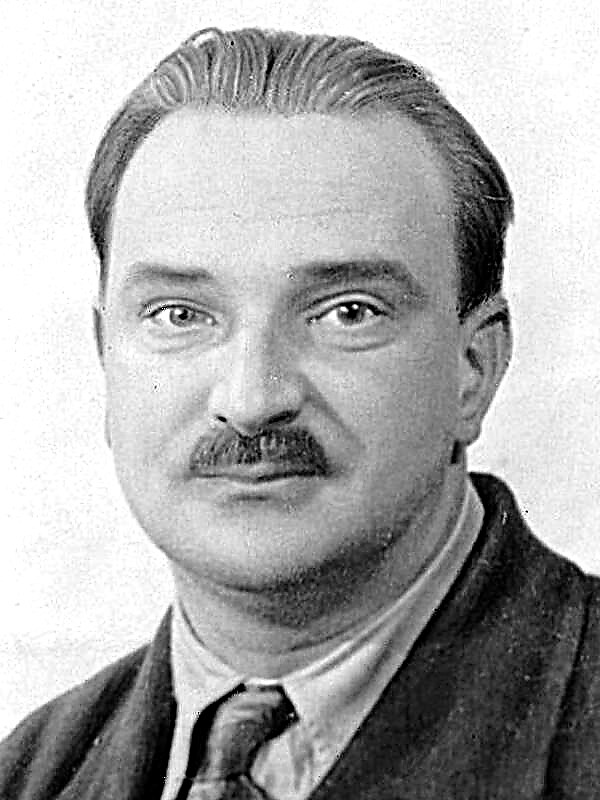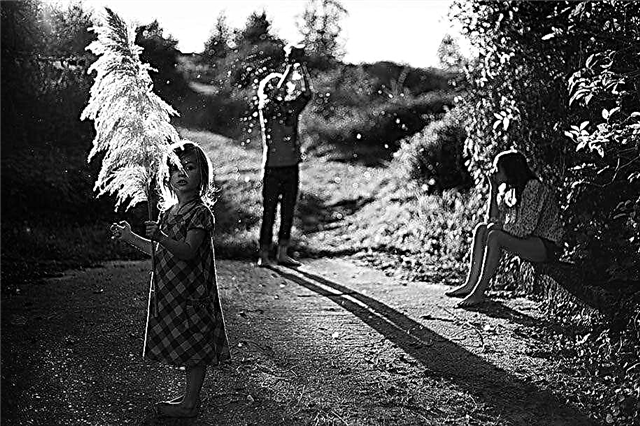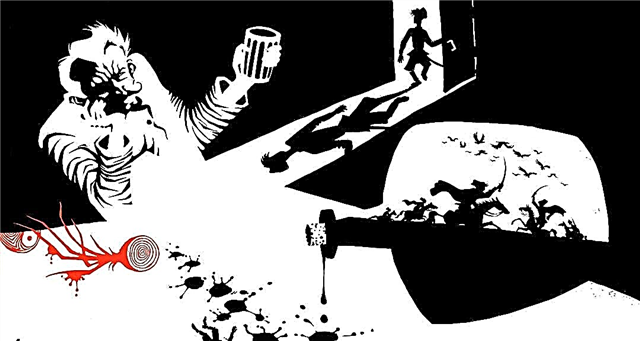“Encouraging a person to correct morals by showing him the proper path” is the reason that prompted the author to create this sad story. The rich and noble Franval, corrupted by his upbringing and “new-fangled trends,” marries the charming Mademoiselle de Farney. The wife worships her husband, he is "amazingly cold-blooded" to her. Nevertheless, a year later they have a daughter, called Franval Eugénie - "at the same time the most terrible and beautiful creation of nature."
As soon as a child was born, Franval begins to carry out his vile plan. He separates the baby from his mother and gives up to the women loyal to him. At seven years old, he hires a daughter of teachers and begins to teach her the most diverse sciences and trains her body. Eugenie lives, obeying the routine thought out by Franval, eats only the dishes he chooses, communicates only with him. Mother and grandmother are extremely rarely allowed to see a girl. Despite the mother's timid protests, Franval forbids giving her daughter the basics of religious education. On the contrary, he gradually inspires the girl with his own cynical views on religion and morality and, in the end, completely subordinates her thoughts and will. The fourteen-year-old Eugénie loves only her “friend”, her “brother”, as Franval tells her to call herself, and hates her mother, seeing in her only an obstacle between her and her father.
And here Franval realizes his vile plan - with the full consent of Eugénie makes her his mistress. His upbringing system is bearing fruit: Eugénie with “tireless fervor” indulges in love with her own father. Every night, lovers indulge in criminal passion, but act so deftly that the beautiful Madame de Franval does not know anything and still tries her best to please her husband; Franval is treating her worse and worse.
The beautiful Eugenie begins to attract fans, and now a worthy young man asks for her hand. Madame de Franval passes his proposal to her daughter, but she refuses and sends the mother to her father for clarification. Hearing from his wife’s lips an offer to marry his daughter, Franval is furious and, under the threat of complete separation from her daughter, forbids his wife to even think about Eugénie's marriage. The distressed Madame de Franval speaks about everything to her mother, and she, being more experienced in everyday affairs, begins to suspect the evil and goes to her son-in-law herself. But she gets the same answer.
In the meantime, Franvalval convinces her daughter that her mother wants to separate them, and together with Eugénie they decide to find Mrs. Farney a lover in order to divert her attention from herself. Their request is ready to fulfill a certain Valmont, a friend of Franval, who does not have "moral prejudice." Wanting to persuade Madame de Franval to love, Valmont tells her that her husband is cheating on her with Eugénie. Not believing his words, Madame de Franval throws out Valmont, but in her soul sown seeds of doubt. Having bribed the maid Eugénie, Madame de Franval the next night was convinced of the truthfulness of the words of Valmont. She begs her daughter and husband to change their minds, but Franval, indifferent to her pleas, throws her down the stairs.
Madame de Franval is seriously ill, and her mother sends her confessor Clerville to Franval so that he can inform his son-in-law. Clerville does not reach his goal, and the vindictive Franval orders his servants to seize the priest and imprison him in one of his secluded castles. Then, deciding to certainly compromise his wife, Franval again appeals for assistance to Valmont. He for his service asks to show him naked Eugenie. Seeing the young beauty in an appropriate form, Valmont falls in love with her and, instead of seducing Madame de Franval, confesses to her his love for Eugénie. Wanting to break Eugénie’s criminal relationship with his father, Valmont proposes to abduct the girl and marry her.
With the consent of Madame de Franval Valmont takes Eugénie away, but Franval catches up with them and kills Valmont. Then, in order to escape the punishment of justice, Franval runs to one of his remote castles and takes his wife and daughter with him. Upon learning that Eugénie was abducted with the knowledge of his wife, he decides to take revenge on Madame de Franval and instructs her daughter to poison her mother. He himself is forced to flee abroad, for he was sentenced to death. On the way, robbers attack Franval and take everything he had from him. The wounded and exhausted Franval meets Clerville: a worthy priest managed to get out of the wreck's dungeons. However, full of Christian humility, Clerville is ready to help his tormentor. On the way, Franval and Clerville meet a gloomy procession - they bury Madame de Franval and Eugenie. Having poisoned her mother, Eugenie suddenly felt such burning remorse that she suddenly died near the cold body of her mother. Rushing onto his wife’s coffin, Franval stabs himself with a dagger. Such is a crime and “its terrible fruits” ...

